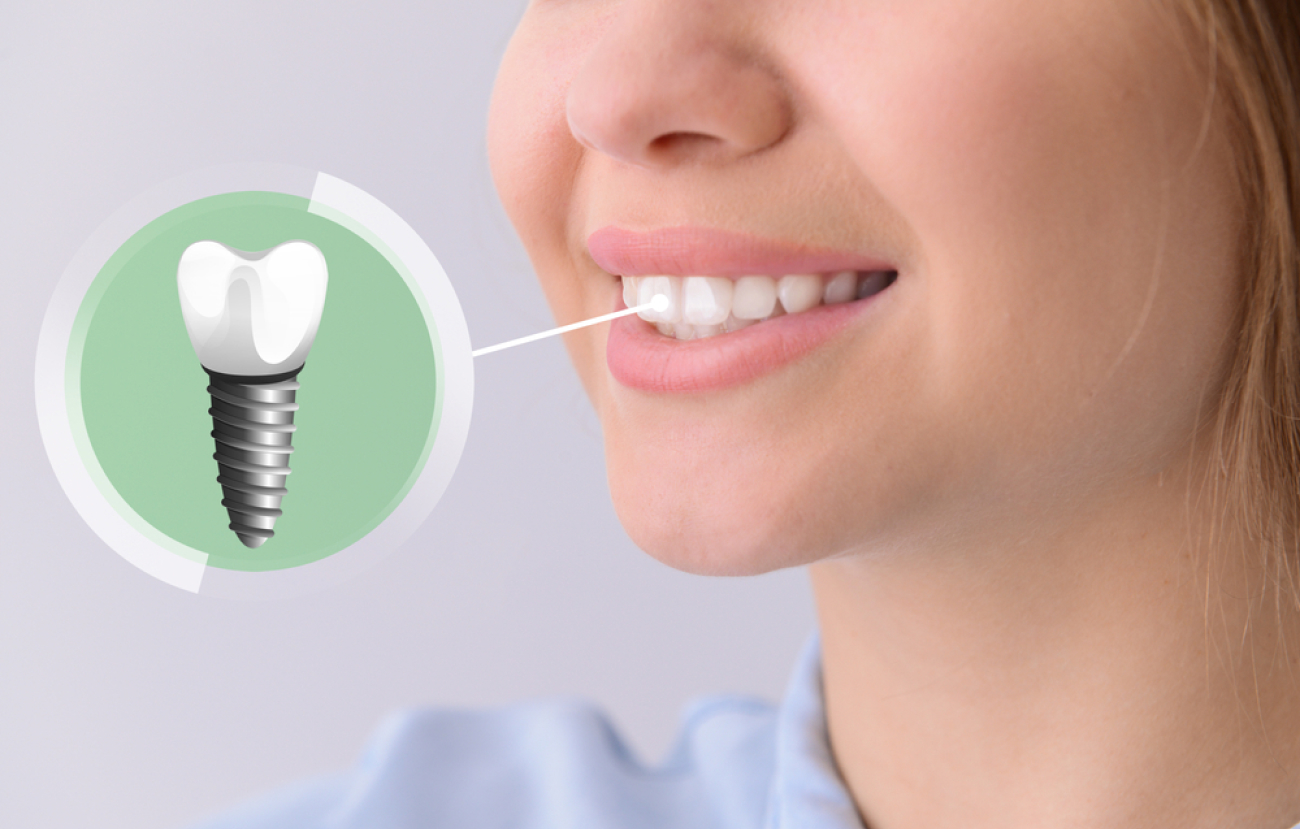
Titanium or ceramic implant – which material is more suitable as a tooth replacement?
A dental implant can completely replace damaged or lost teeth. In such cases, modern dentistry relies on different materials. This article explains what the advantages and disadvantages of using a titanium implant are in comparison to the ceramic variant.
But what exactly is an implant? The term “implant” comes from the Latin “implantare” and means “to plant”. That is exactly what is done with an implant – it is implanted into the jawbone. The part of the dental prosthesis that is anchored root-like in the gum – usually in form of a screw thread – is called an implant. A bridge or crown (so-called superstructure) must then be attached to this artificial root.
Titanium implants have proven their worth in dentistry. However, ceramic implants are now also being used more frequently, as they can be particularly useful for patients who are intolerant to metal.
Titanium dental implants
Titanium is a light metal used in medicine, and especially in dentistry, as a biomaterial for implants. Hundreds of thousands of dental implants made of titanium are transplanted every year in Germany alone. Findings, performance and possible side effects due to titanium are therefore sufficiently known, the risk of a surprise after treatment is therefore very low.
Advantages of titanium implants
In any case, side effects with titanium dental implants are kept within limits, because the material is characterized by high biocompatibility, all the more so when pure titanium is used. This is because the body, in that case, only has to accept one foreign substance, whereas it has to tolerate several materials in the case of alloys. This results in a bond between the bone in the jaw and the material, known as osseointegration. In this process, new bone cells form at the titanium root. The implant can grow quickly and firmly into the jaw.
Disadvantages of titanium implants
The probability of side effects is higher with alloys. If the patient suffers from pre-existing conditions such as diabetes, rheumatism or allergies, the risk increases further. In this respect, dental implants made of pure titanium are safer for the patient. However, this kind of artificial tooth root is also more expensive than the metal combination, because the production of the material is more costly and complicated. Even with pure titanium, however, the risk of the material being rejected does not completely disappear. The probability for that to happen, though, is estimated as very low based on previous experience.
Ceramic dental implants
The other option of dental implantation is anchoring an artificial tooth root made of ceramic. The name, however, is slightly misleading, since these ceramic implants are actually made of zirconium oxide. Zirconium oxide is an inorganic, non-metallic material that is said to resemble titanium in its properties.
However, this form of implantation is still so young and untested that there are currently no sound scientific findings. It is therefore not possible to say definitively to what extent zirconium oxide implants are as stable and durable as their titanium counterparts.
Advantages of ceramic implants
The greatest advantage of ceramic dental implants is their high level of biocompatibility, even for people with pre-existing conditions. If people with rheumatism, diabetes, cardiovascular diseases or other ailments have often been denied an implant, a tooth replacement could be made possible by means of a ceramic variant.
The good tolerability of the material also ensures complication-free healing of the surrounding gums. In addition, the inconspicuous colour of the ceramic tooth replacement speaks in favour of this variant. This guarantees that the implant does not show through in thin gum areas. However, showing through can now also be prevented with titanium dentures if sufficient bone and gums are arranged around the site.
Disadvantages of ceramic implants
Although clear findings do not yet prevail, it is considered largely certain that zirconia implants are less resilient than titanium implants, especially since zirconia is subject to an aging process. Furthermore, the denture must be ground to fit well with the remaining teeth.
Damage cannot be ruled out in the process. The implant takes about twice as long to heal as titanium dental implants. The latter require about six to twelve weeks, while ceramic implants take about 24 weeks. Moreover, healing must take place largely without stress, which can make this period very uncomfortable for the patient.
Source
MundWerk im Alexa (2020). Titan- oder Keramik-Implantat – welches Material eignet sich besser als Zahnersatz? [online] Accessible at: https://www.mundwerk-alexa.de/titan-oder-keramik-implantat-welches-material-eignet-sich-besser-als-zahnersatz/